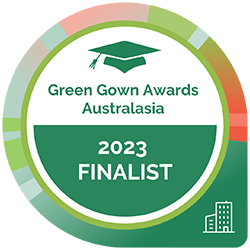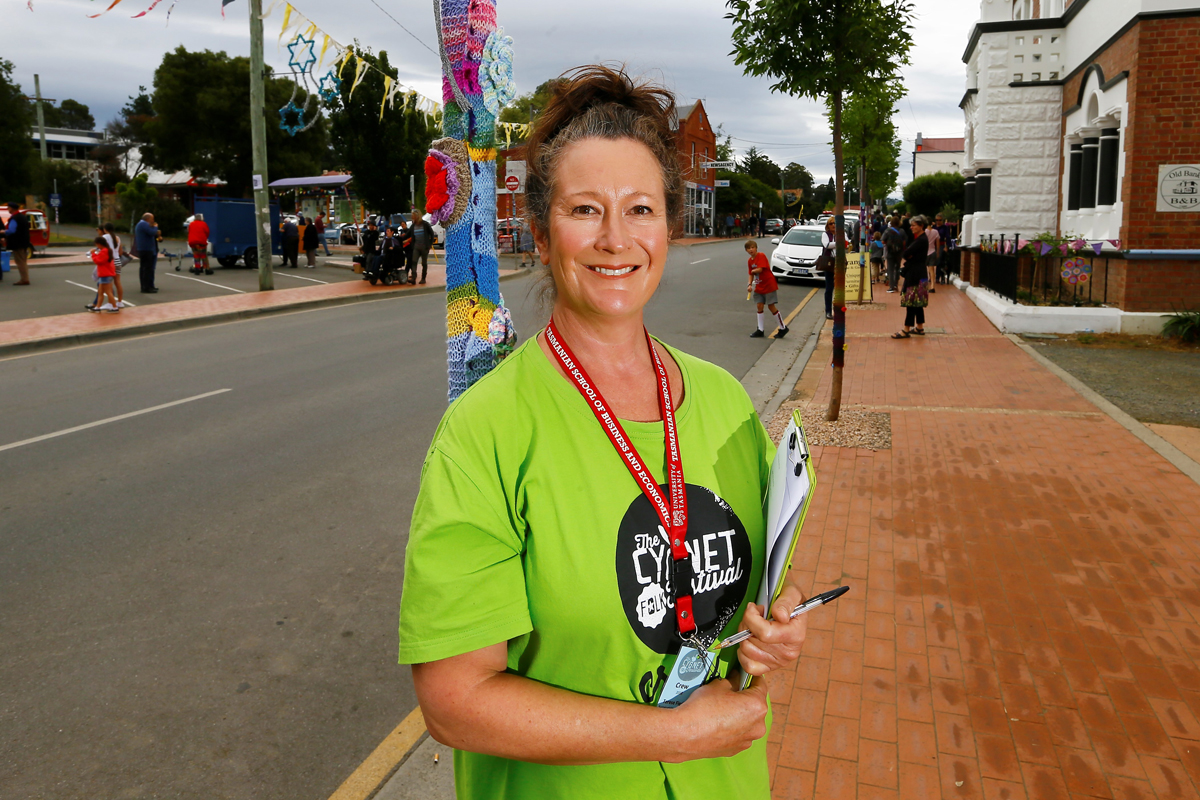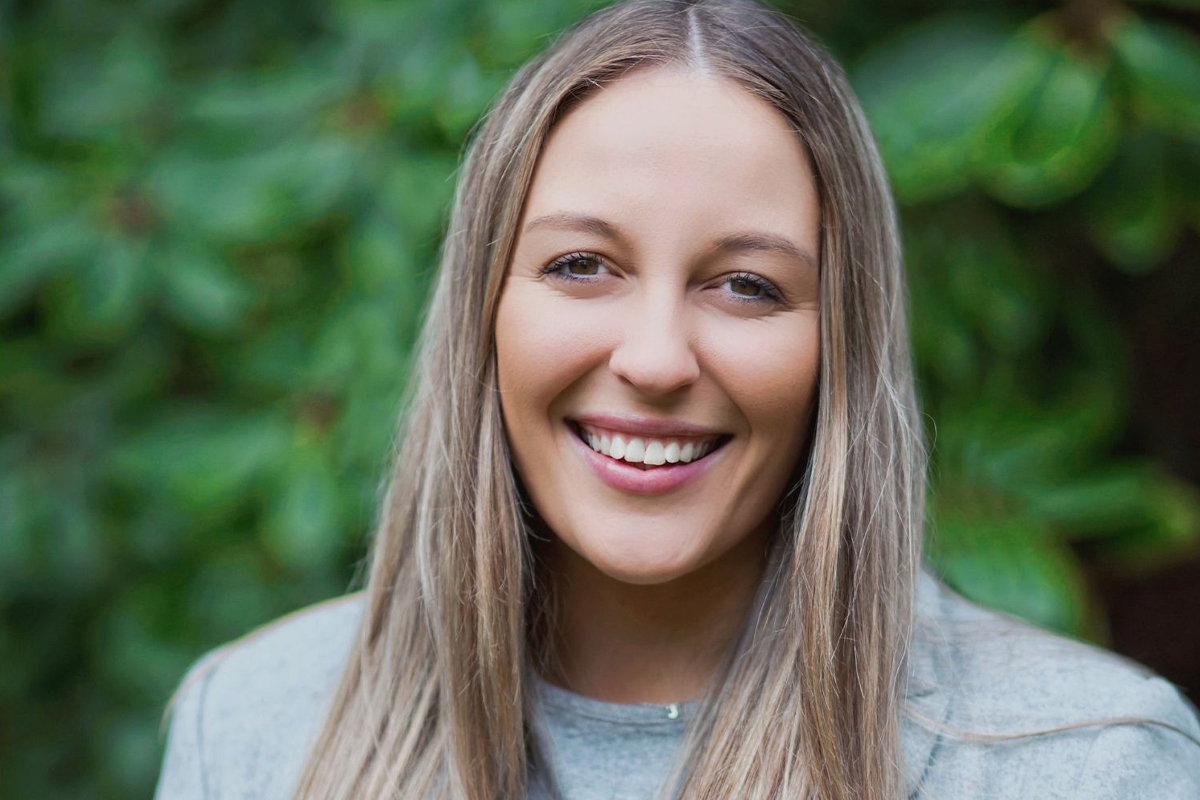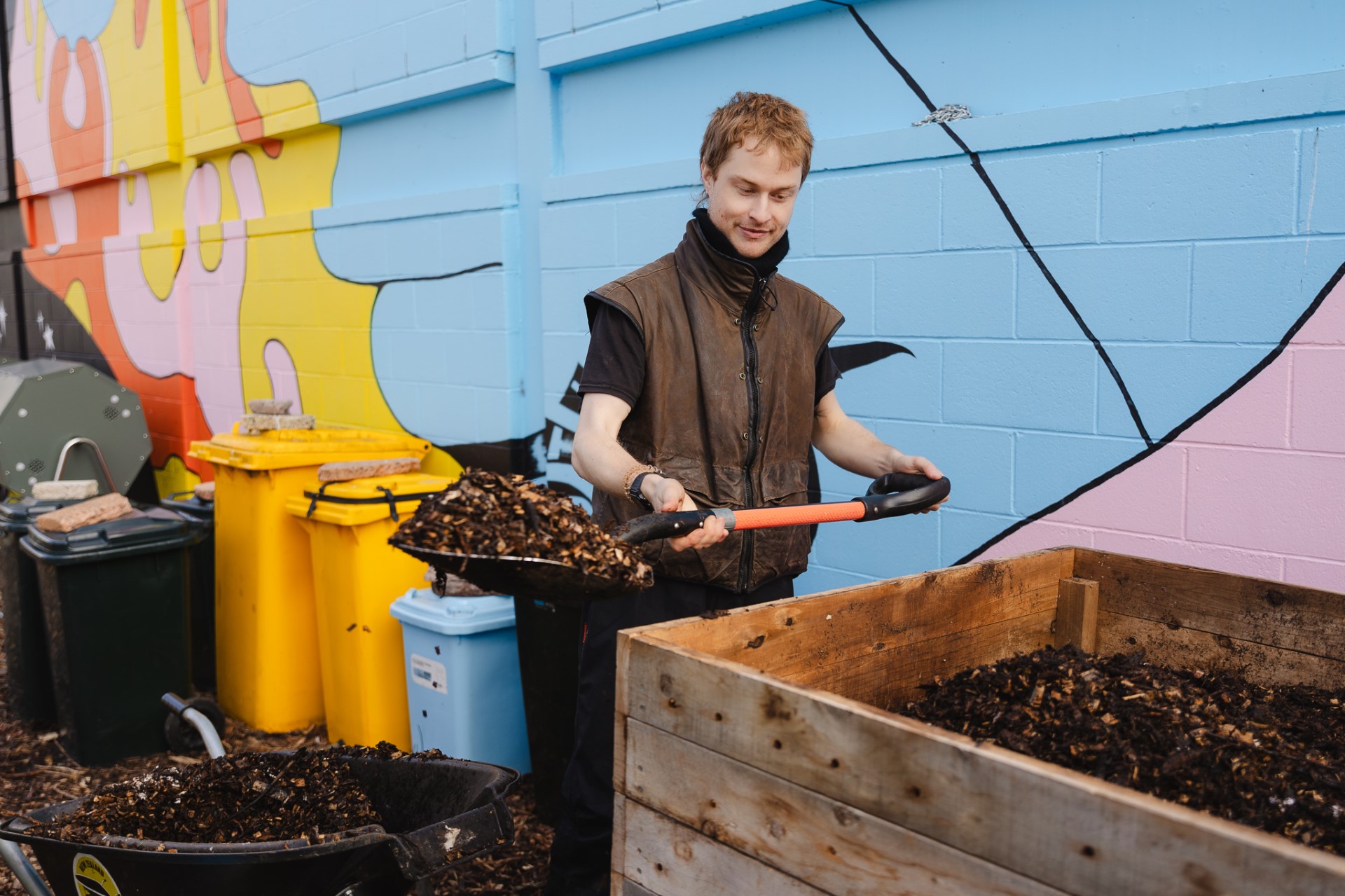Sustainability Champion – Staff category
My academic career has been dedicated to the pursuit of embedding sustainability in business through education and research at UTS and beyond by creating dialogues generative of thought leadership and through partnerships and collaborations across sectors. At UTS, I have been described as a next generation educator, researcher and leader who embraces new teaching methods, technologies, and ways of working with students, peers, collaborators, and partners. Beyond UTS, I have worked with nonprofits, businesses, governments and across the higher education sector to create partnerships and collaborations that raise awareness of and accelerate uptake of strategies for sustainable prosperity.
I am a passionate sustainability educator as I create transformational education programs for undergraduate, postgraduate, and executive levels, often blurring the traditional lines between student and educator, classroom and professional practice. Sustainability educators must move beyond conventional teaching methods as environmental and social issues evolve. To accelerate innovation and adoption, I advocate for sharing best practices to make transformative learning experiences open and accessible. For example, I was a chief investigator on the federal government Office of Learning and Teaching initiative to develop and manage the online sustainability portal, a resource developed under the creative commons, for sustainability education practitioners, which operated for over a decade on a budget of $350 000. Sustaining the initiative for this long time was enabled due to the platform’s innovative design that encouraged voluntary sharing of best practices from an extensive community of practice.
Because sustainability education is optimised through inter- or trans-disciplinary collaborations, I am driven to adopt an inclusive approach through extensive collaborations with colleagues, while ensuring I am ‘walking the talk’, for which I have received numerous awards. For instance, a postgraduate subject I redesigned incorporated systems thinking and sustainability and climate science through an experiential learning design. I was awarded ‘Top 20 Postgraduate Lecturer’ (Spring 2019) and the subject was awarded an ‘Excellent’ overall rating for at least three semesters during the two years 2018-2019. Prior, I co-led an inter-disciplinary Business School dialogue process to embed sustainability across the undergraduate business curriculum, including a creation of a pioneering core first year subject centred on designing a innovative sustainable business solutions for a wicked problem (such as climate change and food waste), for which we received a University Teaching and Learning Team Citation. Going beyond the requirements of the coordinator’s role I developed an industry and government sponsored extracurricular competition, in collaboration with government and business leaders to ensure the learning experience showcased outstanding sustainable business ideas. Paul Orton (Director, Policy, and Advocacy at NSW Business Chamber) a judge in the competition, described the results as ‘inspirational’. More recently, as Director of the Executive MBA, I took the opportunity of a traditional program review to initiate an extensive program redesign with feedback from alumni, industry experts and sustainability professionals. The degree now has a modular learning design that features sustainability as a core foundation of the Corporate Transformation stream, for which I received a UTS Business School ‘Team Innovation’ award and media coverage about the program launch in the Australian Financial Review and MBA news. My ability to manage complex projects and convene people with diverse perspectives mark each of these initiatives and this is a necessary capability for leading transformative initiatives that embed sustainability at the core of our education practices.
As the failure to act on climate change became a material business risk, I have consulted with executives and sustainability professionals and conducted roundtables to understand their strategies in addressing climate change risks to inform our education and research programs. Consultation included Corporates such as Qantas, Mirvac, Lion Nathan, Foodbuy, AGL and Microsoft and associations and intermediaries such as B Lab, Climate-KIC Australia and the Climate Leaders Coalition alongside the Business School senior executive, including in-depth consultation with our Associate Dean (Indigenous) to ensure First People’s worldviews are acknowledged in the positioning. From this process, I developed the UTS Business School statement of our climate action commitment.
It is evident that the challenges, opportunities, and capabilities required to act on climate vary by sector and organisational maturity and often rely on commercially viable, industry wide transformations and ‘positive pursuits’ – where business activities are regenerative rather than extractive. So, I have co-created an action research collaborative to convene cross- sector stakeholders to co-design research projects with leading researchers and practitioners to address complex challenges such as value chain transformations, low carbon digital systems, e-mobility, and the governance of sustainability reporting, finance, and investment. Given the evolving nature of sustainability and climate change issues, success relies on innovation in integrating work-based practice in teaching and assessment and a lifetime of learning approach. In executive education, I have co-created a short course in partnership with Abundium that features our well-renowned phase model for corporate sustainability (see Benn et.al. 2018) to enable leaders to create and implement roadmaps, action plans and developmental strategies for strategic action on climate and sustainability. One global managing director said the course enabled him to take his organisation to the next stage in their strong interest in doing better for our world.
These leadership initiatives have cumulated in my recent appointment as the inaugural Climate Action Fellow to the Australian Business Deans Council (ABDC) to lead a national dialogue and develop and implement a roadmap and action plan to coordinate on climate change across 38 Australian Business Schools.
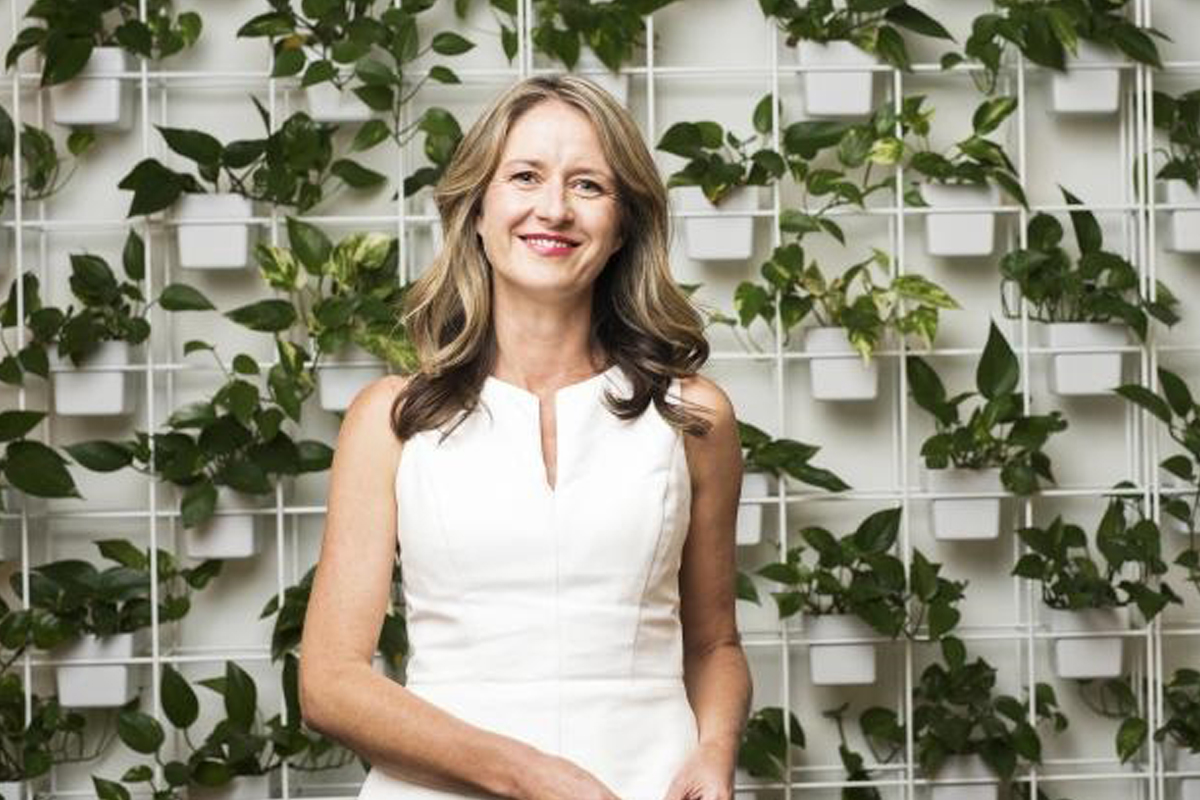
Impact and benefits
A key benefit of the open education initiatives has been to forge networks and communities of practice, to empower educators and offer them an opportunity to think together and share best practices across disciplines and to embed sustainability in their subjects and programs. For instance, with the OLT website, I worked to raise awareness of sharing through open commons and to encourage sharing behaviours between sustainability educators. As part of this I facilitated connection to existing sustainability education networks including ACTS, AAEE and SDSN AusNZPac, and conducted workshops to grow the community of practice and help others to recognise the benefits of sharing the outcomes of their learning and teaching practice. Over 360 sustainability educators participated in this online community where they shared 176 learning and teaching materials, with some being downloaded more than 2500 times. In a survey people frequently cited their reasons for interacting with the site to improve their own understanding, to inform the development of their courses, to inspire their research or so they could distribute the knowledge.
Beneficial outcomes of my work in embedding sustainability in business education is evidenced both in how I have enabled my colleagues to design programs and subjects, and in the impacts this has had on our students in educating and equipping them as future leaders. My philosophy combines a critical realist pedagogy and experiential learning design, so I design subjects and programs for learning discovery rather than instruction. Students learn by reflection, embodying the learning outcomes by applying theories and frameworks and using a problem-based inquiry methodology. The aim is to empower students to develop business strategies and practices that create positive social and ecological impacts. For instance, student feedback regularly includes comments such as: “Learning about sustainability has radically adjusted my perspective on the responsibilities of business. I feel profoundly changed by what I have learned and can see it will have an impact on my career going forward” and inspiring them to undertake sustainability work, “the subject matter is thought-provoking and very relevant to real life and work. It has highlighted how much more my organisation could be doing so I am in the process of instigating a sustainability committee” (anonymised student feedback, 2020). Despite presenting complex and often controversial challenges in classroom settings, students respond favourably such that my aggregate satisfaction rating is 4.2 (out of 5). Students often stay connected well beyond graduation to seek advice on their sustainability business ventures or initiatives they are leading within large corporates or in government.
The approach I take to ensure research outcomes are translated into multiple forms for expanding the impact for many beneficiaries. To do this I collaborate with practitioners and colleagues to conduct research and translate this into educational materials and case studies that are adopted in higher education programs or in professional practice, public reports and policy briefings that stimulate industry innovation and through various forms of public media. For instance, through the CSIRO flagship ‘Wealth from Waste’ program I developed a set of teaching case studies on new business models in the Circular Economy, which were incorporated into the final industry report, implemented into the Undergraduate and Postgraduate sustainability subjects in the Business School, and partially informed a scholarly publication. Alongside this I established a connection to the Ellen McArthur Foundation, a then world-leading Circular Economy foundation. I coordinated the UTS participation in their Disruptive Innovation Festival (DiF), a pioneer open-access global education forum, bringing together educators, practitioners, and students in an online festival format to raise awareness of potential new ways of working in the Circular Economy. UTS was the first Australian university to be a network partner. Subsequently, I was invited to speak at various public forums including the global ReMIX summit, providing advice to EMF on their curriculum design manual, and was asked to provide advice as a participant in the research task force for the NSW Circular Economy supported by the NSW Chief Scientist.
In walking the talk through my activities to ensure the higher education sector acts on climate change and related SDGs, benefits resulting from the publication of the UTS Business School commitment on climate include that action on climate change is: (i)now featured in the Business School’ strategic priorities; (ii) considered a high-priority core capability with over 60 academics and professional staff joining a Team’s site to lift capabilities; (iii) the basis of a newly established climate action group through which we are implementing a course of activities to make action on climate part of ‘business as usual’ across all portfolios, including education, research, engagement, and operations. As the business school representative on the UTS Sustainability Steering Committee, I have led the implementation of various initiatives to improve the implementation of planned objectives in the sustainability strategy, including the above to align the Business School with the University climate positive plan. Another example includes UTS decarbonisation forum on sustainable finance, investment, and procurement an outcome of which we developed a submission to the University Council in liaison with colleagues and the UTS students’ association to seek consideration of divestment, which alongside a broader University process, has seen the University divest from fossil fuels.
Leadership and engagement
The common distinction across all my actions is the collegiate and inclusive process I take to establish common ground for cooperation. Most recently I was awarded the 2023 UTS Business School Award for Leadership excellence in contributing to positive outcomes for the Business School community. The award recognised my “longstanding and inspirational leadership in the field of sustainability and responsible management, both within the Business School and the University, and as an influential advocate for climate action, awareness and education across the sector and industry. Your tireless commitment to leading change across a broad range of climate-focused initiatives, working closely and collaboratively to engage key industry partners and colleagues in strategic projects, your innovative approach to expanding sustainability education through stewardship of the Executive MBA and the development of micro credentials and short courses, and your integral role in furthering the Business School’s commitment to climate action, is evidence of your outstanding contribution in advancing knowledge for a more sustainable world”. For this leadership, I previously received a UTS Green Hero Award for leadership in 2018.
As an experienced director in education and research roles, I view my approach to engagement as being a steward, fostering collegiate cultures and transdisciplinary collaborations, to address complex issues such as climate change, persistent inequalities and inclusive participation in economies and communities. While identifying strategies and processes that drive organisational activities that have positive impacts on society and the environment is my driver, I realise impactful outcomes only occur when people take initiative together and in the context of their own work. So, I consider a key feature of my educational leadership is to make education open and invest in research co-creation and translation so it can benefit society.
My practice can best be described as a form of engaged scholarship driven by a theory that regenerative impacts only occur if research is driven by people experiencing the challenges in their field and if insights from any research lift capabilities through translation. So, my engagement approach is to take a participatory systems innovation approach. For instance, in recent research projects, I have collaborated and brought together research and education on sustainability topics when they were emerging fields of practice, such as:
Sustainable finance and investment – a collaboration with Climate-KIC Australia on a project funded by the EU Strategic Partnerships for the Implementation of the Paris Agreement (SPIPA) was the first to compare the EU sustainable finance taxonomy with policy frameworks in Australia. I incorporated Delphi techniques to convene roundtables with high-level industry stakeholders, academic experts, and policymakers such as EU delegates and senior bureaucrats. Outcomes from this engaged action research were shared through policy briefs, a media release and public reports, presentations to public forums and high-level stakeholder groups, and a peer-reviewed academic journal. We received a UTS Business School research centre Impact Award in 2020 for this project
Social impact and measuring what matters – Understanding how organisations purposively and strategically create positive social and ecological impacts is increasingly significant in my field. With no universal agreement on this topic, this remains another vibrant area of my recent research collaborations. I conducted early project such as a City of Sydney partnership project where I engaged with 30 local community groups to develop a workshop series on social impact. From this we developed a toolkit and guidebook for practitioners to develop and measure social impact and the outcomes were published in an academic publication. Through a Surf Life Saving Australia (SLSA) collaboration we developed an innovative social impact tool that was awarded for excellence in innovation by the Social Impact Measurement Network Australia. Various outcomes included modifications to the SLSA mission, a public report, media articles in the Sydney Morning Herald and in accounting, philanthropy, and academic publications. And in another collaboration with the Wayside Chapel, we translated scholarly research to produce a ‘Managing Hybrid Enterprises’ guidebook for Wayside Chapel which was shared with the sector and government through a public seminar and the findings of the research helped the Organisation develop their social enterprise strategy.
Corporate transformation through positive pursuits – as regenerative approaches are needed to ensure sustainable progress on a habitable planet, I have collaborated with CEOs, sustainability professionals and the positive leadership consultancy Abundium, to develop case studies on how to set ambitious strategic intent on climate change and coordinate credible implementation plans across complex value chains. The course makes a difference by providing transparency about the practices, frameworks, tools, and mindsets that can empower and cultivate peoples disposition for decision-making that positively impacts sustainable economic prosperity.
These projects were created at the time when those topics were new and the approaches for addressing them were uncertain and therefore the stakeholder engagement processes were highly complex and pluralistic.
When appointed to an inaugural national role to help Australia’s business schools act in 2022, the role was described by the President of the ABDC as ‘unchartered’ to which my leadership capabilities are well suited. I have since initiated dialogue across the national networks to develop a roadmap and action plans for synchronised initiatives to: (i) raise carbon literacies and establish climate change learning thresholds for business graduates, (ii) showcase excellence in business responses to climate change, and (iii) and to open opportunities for cross sector collaborations. For the later I have established a climate industry reference group comprising leaders of climate and sustainability related peak bodies to engage with the Deans and their executive councils.
Wider societal impact
My engaged scholarship approach highlights how higher education contributes to addressing climate change and sustainability by educating future leaders and promoting evidence-based thought leadership for industry transformation. Beyond the classroom, alumni of the sustainability programs I created often stay in touch as they take leadership roles in transforming their workplace sustainability practices. For instance, one graduate has founded a pioneering company in the circular economy and another successfully introduced a sustainability and ESG strategy into global company through their role as managing director.
The effects of my research and education projects, highlight how action research can cultivate communities of practice through convening professionals, students and practitioners in seminars, workshops, and forums. Outcomes are disseminated through community forums or by convening expert panels or public presentations and then further translated to explain topical research and educational thought leadership for the public, where I have appeared in print for the AFR, SMH, and Boss magazine, radio for 2Ser and ABC National, and screen for the ABC. Peers regularly invite me to speak on plenaries and give keynotes within higher education and other sectors, including the Better Futures Forum, the ImpactX conference, and the Circularity Australia conference as the host for the Forefront ESG and sustainability conference in Sydney.
Engaged scholarship enables me to connect with a global scholarly community where I have contributed to the establishment of the field of Sustainability in Management Education (SiME) research, through my various publications. As co-chair for a professional development workshop at the world leading Academy of Management conference I ran experiential workshops to lift capabilities of management educators in sustainability and responsible practice, which cumulated in the publication of the Handbook of Sustainability in Management Education, for which I was section editor and chapter author. This book is reference material for the United Nations PRME working group on sustainability mindset of which I am an inaugural member, having completed the LEAP sustainability mindset training. As chair of the Australia-NZ PRME climate and sustainability working group, chair of the UTS Business School cross-faculty climate action working group, and a UTS Sustainability Steering Committee member, I walk the talk by supporting the Higher Education sector to achieve positive climate and sustainability impacts.
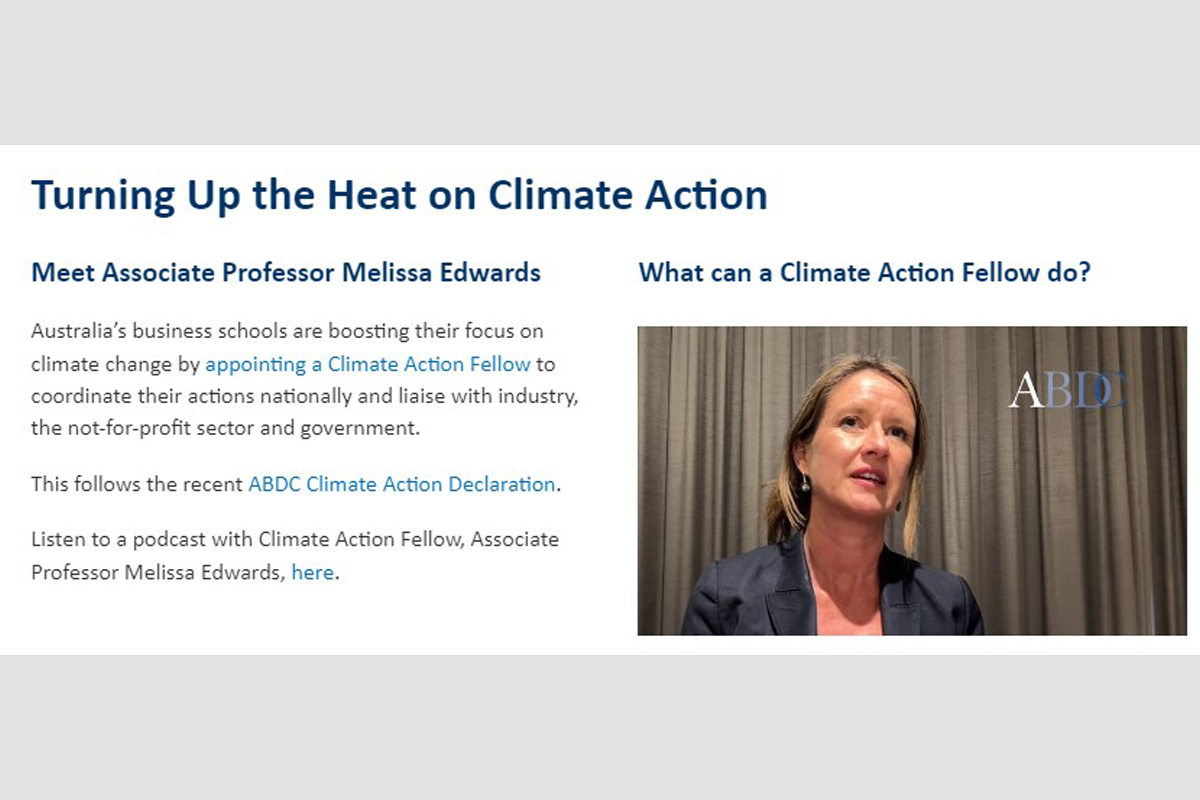
Related finalists
Sustainability Champion – Staff
Sustainability Champion – Staff
Sustainability Champion – Staff/Winners
Sustainability Champion – Staff/Winners
Sustainability Champion – Staff
Sustainability Champion – Staff
Sustainability Champion – Staff/Winners
Sustainability Champion – Staff/Winners
Sustainability Champion – Staff/Winners
Sustainability Champion – Staff/Winners
Other finalists
Climate Action
Climate Action
Sustainability Champion – Staff/Winners
Sustainability Champion – Staff/Winners
Student Engagement
Student Engagement
Creating Impact
Creating Impact
Sustainability Champion – Staff/Winners
Sustainability Champion – Staff/Winners
Sustainability Champion – Student
Sustainability Champion – Student
My academic career has been dedicated to the pursuit of embedding sustainability in business through education and research at UTS and beyond by creating dialogues generative of thought leadership and through partnerships and collaborations across sectors. At UTS, I have been described as a next generation educator, researcher and leader who embraces new teaching methods, technologies, and ways of working with students, peers, collaborators, and partners. Beyond UTS, I have worked with nonprofits, businesses, governments and across the higher education sector to create partnerships and collaborations that raise awareness of and accelerate uptake of strategies for sustainable prosperity.
I am a passionate sustainability educator as I create transformational education programs for undergraduate, postgraduate, and executive levels, often blurring the traditional lines between student and educator, classroom and professional practice. Sustainability educators must move beyond conventional teaching methods as environmental and social issues evolve. To accelerate innovation and adoption, I advocate for sharing best practices to make transformative learning experiences open and accessible. For example, I was a chief investigator on the federal government Office of Learning and Teaching initiative to develop and manage the online sustainability portal, a resource developed under the creative commons, for sustainability education practitioners, which operated for over a decade on a budget of $350 000. Sustaining the initiative for this long time was enabled due to the platform’s innovative design that encouraged voluntary sharing of best practices from an extensive community of practice.
Because sustainability education is optimised through inter- or trans-disciplinary collaborations, I am driven to adopt an inclusive approach through extensive collaborations with colleagues, while ensuring I am ‘walking the talk’, for which I have received numerous awards. For instance, a postgraduate subject I redesigned incorporated systems thinking and sustainability and climate science through an experiential learning design. I was awarded ‘Top 20 Postgraduate Lecturer’ (Spring 2019) and the subject was awarded an ‘Excellent’ overall rating for at least three semesters during the two years 2018-2019. Prior, I co-led an inter-disciplinary Business School dialogue process to embed sustainability across the undergraduate business curriculum, including a creation of a pioneering core first year subject centred on designing a innovative sustainable business solutions for a wicked problem (such as climate change and food waste), for which we received a University Teaching and Learning Team Citation. Going beyond the requirements of the coordinator’s role I developed an industry and government sponsored extracurricular competition, in collaboration with government and business leaders to ensure the learning experience showcased outstanding sustainable business ideas. Paul Orton (Director, Policy, and Advocacy at NSW Business Chamber) a judge in the competition, described the results as ‘inspirational’. More recently, as Director of the Executive MBA, I took the opportunity of a traditional program review to initiate an extensive program redesign with feedback from alumni, industry experts and sustainability professionals. The degree now has a modular learning design that features sustainability as a core foundation of the Corporate Transformation stream, for which I received a UTS Business School ‘Team Innovation’ award and media coverage about the program launch in the Australian Financial Review and MBA news. My ability to manage complex projects and convene people with diverse perspectives mark each of these initiatives and this is a necessary capability for leading transformative initiatives that embed sustainability at the core of our education practices.
As the failure to act on climate change became a material business risk, I have consulted with executives and sustainability professionals and conducted roundtables to understand their strategies in addressing climate change risks to inform our education and research programs. Consultation included Corporates such as Qantas, Mirvac, Lion Nathan, Foodbuy, AGL and Microsoft and associations and intermediaries such as B Lab, Climate-KIC Australia and the Climate Leaders Coalition alongside the Business School senior executive, including in-depth consultation with our Associate Dean (Indigenous) to ensure First People’s worldviews are acknowledged in the positioning. From this process, I developed the UTS Business School statement of our climate action commitment.
It is evident that the challenges, opportunities, and capabilities required to act on climate vary by sector and organisational maturity and often rely on commercially viable, industry wide transformations and ‘positive pursuits’ – where business activities are regenerative rather than extractive. So, I have co-created an action research collaborative to convene cross- sector stakeholders to co-design research projects with leading researchers and practitioners to address complex challenges such as value chain transformations, low carbon digital systems, e-mobility, and the governance of sustainability reporting, finance, and investment. Given the evolving nature of sustainability and climate change issues, success relies on innovation in integrating work-based practice in teaching and assessment and a lifetime of learning approach. In executive education, I have co-created a short course in partnership with Abundium that features our well-renowned phase model for corporate sustainability (see Benn et.al. 2018) to enable leaders to create and implement roadmaps, action plans and developmental strategies for strategic action on climate and sustainability. One global managing director said the course enabled him to take his organisation to the next stage in their strong interest in doing better for our world.
These leadership initiatives have cumulated in my recent appointment as the inaugural Climate Action Fellow to the Australian Business Deans Council (ABDC) to lead a national dialogue and develop and implement a roadmap and action plan to coordinate on climate change across 38 Australian Business Schools.

Impact and benefits
A key benefit of the open education initiatives has been to forge networks and communities of practice, to empower educators and offer them an opportunity to think together and share best practices across disciplines and to embed sustainability in their subjects and programs. For instance, with the OLT website, I worked to raise awareness of sharing through open commons and to encourage sharing behaviours between sustainability educators. As part of this I facilitated connection to existing sustainability education networks including ACTS, AAEE and SDSN AusNZPac, and conducted workshops to grow the community of practice and help others to recognise the benefits of sharing the outcomes of their learning and teaching practice. Over 360 sustainability educators participated in this online community where they shared 176 learning and teaching materials, with some being downloaded more than 2500 times. In a survey people frequently cited their reasons for interacting with the site to improve their own understanding, to inform the development of their courses, to inspire their research or so they could distribute the knowledge.
Beneficial outcomes of my work in embedding sustainability in business education is evidenced both in how I have enabled my colleagues to design programs and subjects, and in the impacts this has had on our students in educating and equipping them as future leaders. My philosophy combines a critical realist pedagogy and experiential learning design, so I design subjects and programs for learning discovery rather than instruction. Students learn by reflection, embodying the learning outcomes by applying theories and frameworks and using a problem-based inquiry methodology. The aim is to empower students to develop business strategies and practices that create positive social and ecological impacts. For instance, student feedback regularly includes comments such as: “Learning about sustainability has radically adjusted my perspective on the responsibilities of business. I feel profoundly changed by what I have learned and can see it will have an impact on my career going forward” and inspiring them to undertake sustainability work, “the subject matter is thought-provoking and very relevant to real life and work. It has highlighted how much more my organisation could be doing so I am in the process of instigating a sustainability committee” (anonymised student feedback, 2020). Despite presenting complex and often controversial challenges in classroom settings, students respond favourably such that my aggregate satisfaction rating is 4.2 (out of 5). Students often stay connected well beyond graduation to seek advice on their sustainability business ventures or initiatives they are leading within large corporates or in government.
The approach I take to ensure research outcomes are translated into multiple forms for expanding the impact for many beneficiaries. To do this I collaborate with practitioners and colleagues to conduct research and translate this into educational materials and case studies that are adopted in higher education programs or in professional practice, public reports and policy briefings that stimulate industry innovation and through various forms of public media. For instance, through the CSIRO flagship ‘Wealth from Waste’ program I developed a set of teaching case studies on new business models in the Circular Economy, which were incorporated into the final industry report, implemented into the Undergraduate and Postgraduate sustainability subjects in the Business School, and partially informed a scholarly publication. Alongside this I established a connection to the Ellen McArthur Foundation, a then world-leading Circular Economy foundation. I coordinated the UTS participation in their Disruptive Innovation Festival (DiF), a pioneer open-access global education forum, bringing together educators, practitioners, and students in an online festival format to raise awareness of potential new ways of working in the Circular Economy. UTS was the first Australian university to be a network partner. Subsequently, I was invited to speak at various public forums including the global ReMIX summit, providing advice to EMF on their curriculum design manual, and was asked to provide advice as a participant in the research task force for the NSW Circular Economy supported by the NSW Chief Scientist.
In walking the talk through my activities to ensure the higher education sector acts on climate change and related SDGs, benefits resulting from the publication of the UTS Business School commitment on climate include that action on climate change is: (i)now featured in the Business School’ strategic priorities; (ii) considered a high-priority core capability with over 60 academics and professional staff joining a Team’s site to lift capabilities; (iii) the basis of a newly established climate action group through which we are implementing a course of activities to make action on climate part of ‘business as usual’ across all portfolios, including education, research, engagement, and operations. As the business school representative on the UTS Sustainability Steering Committee, I have led the implementation of various initiatives to improve the implementation of planned objectives in the sustainability strategy, including the above to align the Business School with the University climate positive plan. Another example includes UTS decarbonisation forum on sustainable finance, investment, and procurement an outcome of which we developed a submission to the University Council in liaison with colleagues and the UTS students’ association to seek consideration of divestment, which alongside a broader University process, has seen the University divest from fossil fuels.
Leadership and engagement
The common distinction across all my actions is the collegiate and inclusive process I take to establish common ground for cooperation. Most recently I was awarded the 2023 UTS Business School Award for Leadership excellence in contributing to positive outcomes for the Business School community. The award recognised my “longstanding and inspirational leadership in the field of sustainability and responsible management, both within the Business School and the University, and as an influential advocate for climate action, awareness and education across the sector and industry. Your tireless commitment to leading change across a broad range of climate-focused initiatives, working closely and collaboratively to engage key industry partners and colleagues in strategic projects, your innovative approach to expanding sustainability education through stewardship of the Executive MBA and the development of micro credentials and short courses, and your integral role in furthering the Business School’s commitment to climate action, is evidence of your outstanding contribution in advancing knowledge for a more sustainable world”. For this leadership, I previously received a UTS Green Hero Award for leadership in 2018.
As an experienced director in education and research roles, I view my approach to engagement as being a steward, fostering collegiate cultures and transdisciplinary collaborations, to address complex issues such as climate change, persistent inequalities and inclusive participation in economies and communities. While identifying strategies and processes that drive organisational activities that have positive impacts on society and the environment is my driver, I realise impactful outcomes only occur when people take initiative together and in the context of their own work. So, I consider a key feature of my educational leadership is to make education open and invest in research co-creation and translation so it can benefit society.
My practice can best be described as a form of engaged scholarship driven by a theory that regenerative impacts only occur if research is driven by people experiencing the challenges in their field and if insights from any research lift capabilities through translation. So, my engagement approach is to take a participatory systems innovation approach. For instance, in recent research projects, I have collaborated and brought together research and education on sustainability topics when they were emerging fields of practice, such as:
Sustainable finance and investment – a collaboration with Climate-KIC Australia on a project funded by the EU Strategic Partnerships for the Implementation of the Paris Agreement (SPIPA) was the first to compare the EU sustainable finance taxonomy with policy frameworks in Australia. I incorporated Delphi techniques to convene roundtables with high-level industry stakeholders, academic experts, and policymakers such as EU delegates and senior bureaucrats. Outcomes from this engaged action research were shared through policy briefs, a media release and public reports, presentations to public forums and high-level stakeholder groups, and a peer-reviewed academic journal. We received a UTS Business School research centre Impact Award in 2020 for this project
Social impact and measuring what matters – Understanding how organisations purposively and strategically create positive social and ecological impacts is increasingly significant in my field. With no universal agreement on this topic, this remains another vibrant area of my recent research collaborations. I conducted early project such as a City of Sydney partnership project where I engaged with 30 local community groups to develop a workshop series on social impact. From this we developed a toolkit and guidebook for practitioners to develop and measure social impact and the outcomes were published in an academic publication. Through a Surf Life Saving Australia (SLSA) collaboration we developed an innovative social impact tool that was awarded for excellence in innovation by the Social Impact Measurement Network Australia. Various outcomes included modifications to the SLSA mission, a public report, media articles in the Sydney Morning Herald and in accounting, philanthropy, and academic publications. And in another collaboration with the Wayside Chapel, we translated scholarly research to produce a ‘Managing Hybrid Enterprises’ guidebook for Wayside Chapel which was shared with the sector and government through a public seminar and the findings of the research helped the Organisation develop their social enterprise strategy.
Corporate transformation through positive pursuits – as regenerative approaches are needed to ensure sustainable progress on a habitable planet, I have collaborated with CEOs, sustainability professionals and the positive leadership consultancy Abundium, to develop case studies on how to set ambitious strategic intent on climate change and coordinate credible implementation plans across complex value chains. The course makes a difference by providing transparency about the practices, frameworks, tools, and mindsets that can empower and cultivate peoples disposition for decision-making that positively impacts sustainable economic prosperity.
These projects were created at the time when those topics were new and the approaches for addressing them were uncertain and therefore the stakeholder engagement processes were highly complex and pluralistic.
When appointed to an inaugural national role to help Australia’s business schools act in 2022, the role was described by the President of the ABDC as ‘unchartered’ to which my leadership capabilities are well suited. I have since initiated dialogue across the national networks to develop a roadmap and action plans for synchronised initiatives to: (i) raise carbon literacies and establish climate change learning thresholds for business graduates, (ii) showcase excellence in business responses to climate change, and (iii) and to open opportunities for cross sector collaborations. For the later I have established a climate industry reference group comprising leaders of climate and sustainability related peak bodies to engage with the Deans and their executive councils.
Wider societal impact
My engaged scholarship approach highlights how higher education contributes to addressing climate change and sustainability by educating future leaders and promoting evidence-based thought leadership for industry transformation. Beyond the classroom, alumni of the sustainability programs I created often stay in touch as they take leadership roles in transforming their workplace sustainability practices. For instance, one graduate has founded a pioneering company in the circular economy and another successfully introduced a sustainability and ESG strategy into global company through their role as managing director.
The effects of my research and education projects, highlight how action research can cultivate communities of practice through convening professionals, students and practitioners in seminars, workshops, and forums. Outcomes are disseminated through community forums or by convening expert panels or public presentations and then further translated to explain topical research and educational thought leadership for the public, where I have appeared in print for the AFR, SMH, and Boss magazine, radio for 2Ser and ABC National, and screen for the ABC. Peers regularly invite me to speak on plenaries and give keynotes within higher education and other sectors, including the Better Futures Forum, the ImpactX conference, and the Circularity Australia conference as the host for the Forefront ESG and sustainability conference in Sydney.
Engaged scholarship enables me to connect with a global scholarly community where I have contributed to the establishment of the field of Sustainability in Management Education (SiME) research, through my various publications. As co-chair for a professional development workshop at the world leading Academy of Management conference I ran experiential workshops to lift capabilities of management educators in sustainability and responsible practice, which cumulated in the publication of the Handbook of Sustainability in Management Education, for which I was section editor and chapter author. This book is reference material for the United Nations PRME working group on sustainability mindset of which I am an inaugural member, having completed the LEAP sustainability mindset training. As chair of the Australia-NZ PRME climate and sustainability working group, chair of the UTS Business School cross-faculty climate action working group, and a UTS Sustainability Steering Committee member, I walk the talk by supporting the Higher Education sector to achieve positive climate and sustainability impacts.

Related finalists
Sustainability Champion – Staff/Winners
Sustainability Champion – Staff/Winners
Sustainability Champion – Staff/Winners
Sustainability Champion – Staff/Winners
Sustainability Champion – Staff
Sustainability Champion – Staff
Other finalists
Climate Action
Climate Action
Sustainability Champion – Staff/Winners
Sustainability Champion – Staff/Winners
Student Engagement
Student Engagement

